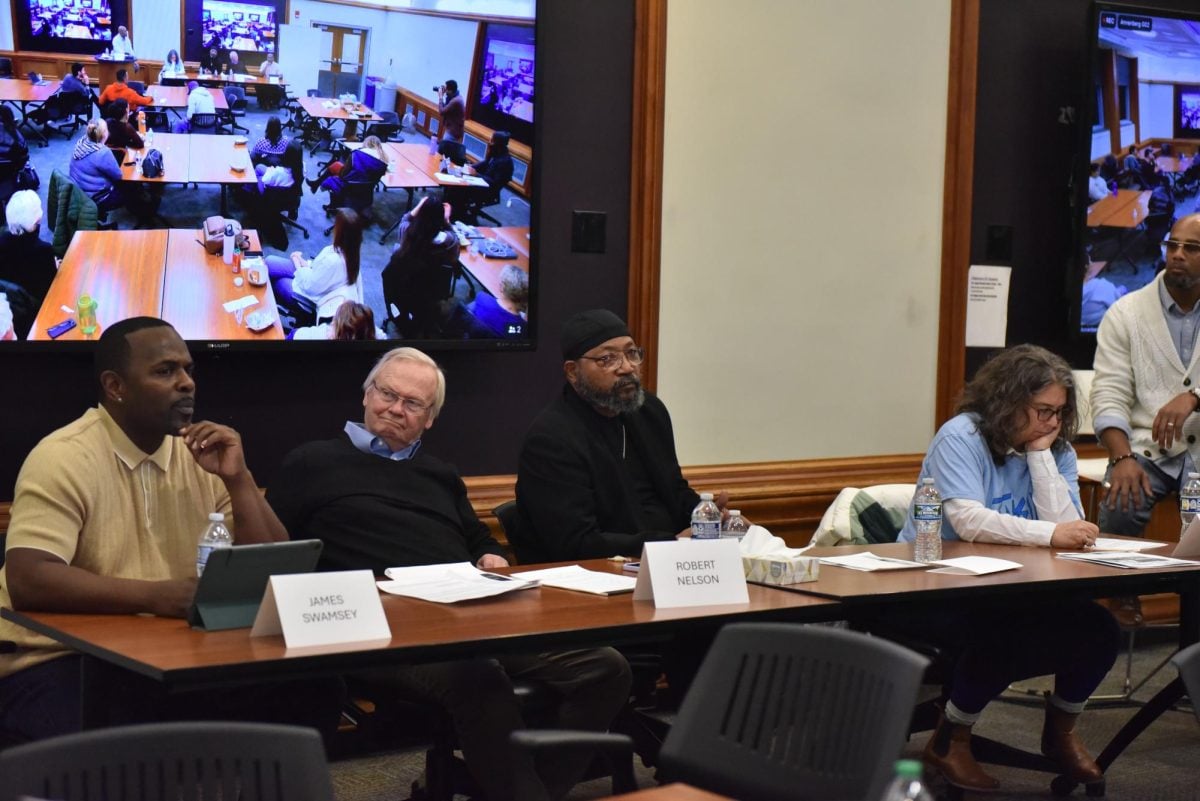Although Frank Alexander II spent his time incarcerated working in offices, healthcare and a print shop, he was told upon release that he would be “better off at a restaurant washing dishes” because his work history didn’t count outside prison, he said.
Alexander has only been home for a year, but has since been promoted to a managerial position at his manufacturing company, he said.
“We have the potential, we’re just not given the opportunity to advance,” Alexander said. “What if I had certifications? Do you think that conversation would have been different?”
Alexander hosted a panel with the Northwestern Prison Education Program Tuesday night, bringing formerly incarcerated individuals and educators together to speak about the difficulties of reentry for those with longer sentences and what educational programs can mean for them.
NPEP is an NU initiative to offer liberal arts education to incarcerated students, according to its website. NU Sociology of Law Professor Robert Nelson, who was one of the panelists, said that liberal arts is not just about providing students with a set program, but also providing them with a set of tools and life skills.
Illinois was initially a leader in higher education for incarcerated individuals — the state was the first in the country to offer a degree-granting college-in-prison program, and at one point, every prison in Illinois offered some form of higher education, according to a report by the Education Justice Project. However, these programs began to collapse in 1989 due to restrictions on state funding.
Panelist Aaron Snowden said that when he first entered prison, he could order books from all over the world and take as many college courses as he wanted to. Though educational programs and resources didn’t completely disappear while he was incarcerated, they became less accessible over time, he said.
Today, those who are serving shorter two- to three-year sentences are often allowed to enroll in educational programs to get time reduced from their sentences and relieve some pressure from the system, Snowden said. Individuals who are serving longer sentences don’t have that same incentive and can be barred from enrolling, he said.
“It’s a setup for failure, simply because (the prisons) know that (individuals with shorter sentences) aren’t going to learn anything. They just want the good time,” Alexander said.
Alexander — who got 40 years back from his original sentence when laws surrounding juvenile offenses changed in Illinois — said that individuals with longer sentences who want to enroll are interested simply because they want to better themselves. That’s what time in prison should be dedicated toward, he said.
Changes in legislation mean that people with shorter sentences aren’t necessarily the only ones coming home soon though, Alexander said. People like him, who were unable to access educational programs because of their previously long sentences, might exit the carceral system without any credentials or resources, he said.
“I think those are the people that need to be invested in, more so than low-level offenses,” panelist James Swansey, who was formerly incarcerated and now lobbies for additional pathways out of the carceral system, said. “Not to say that they don’t need help, but individuals that receive long-term sentences, it’s like they’re automatically tossed away.”
Prison education has profound benefits, even for those serving lengthy or life sentences, according to NPEP’s website. Studies have shown that the higher the education, the lower the recidivism rate.
While the primary argument against education in prisons is its cost, a University of California, Los Angeles study demonstrated that prison education is almost twice as cost-effective as incarceration — while investing $1 million in prison education can prevent 600 crimes, investing the same amount in incarceration prevents only 350 crimes.
“The people coming home today … it’s not just those who have two years or less,” Alexander said. “You have to ask yourself this question, ‘Who do I want in my community?’”
Email: naomitaxay2027@u.northwestern.edu
Twitter: @NaomiTaxay
Related Stories:
— NPEP virtual panel addresses LGBTQ+ intersectionality in the criminal justice system
— NPEP holds panel on reexamining Illinois Parole Board
— Justice-Impacted Writers Project brings screenwriting to NPEP







